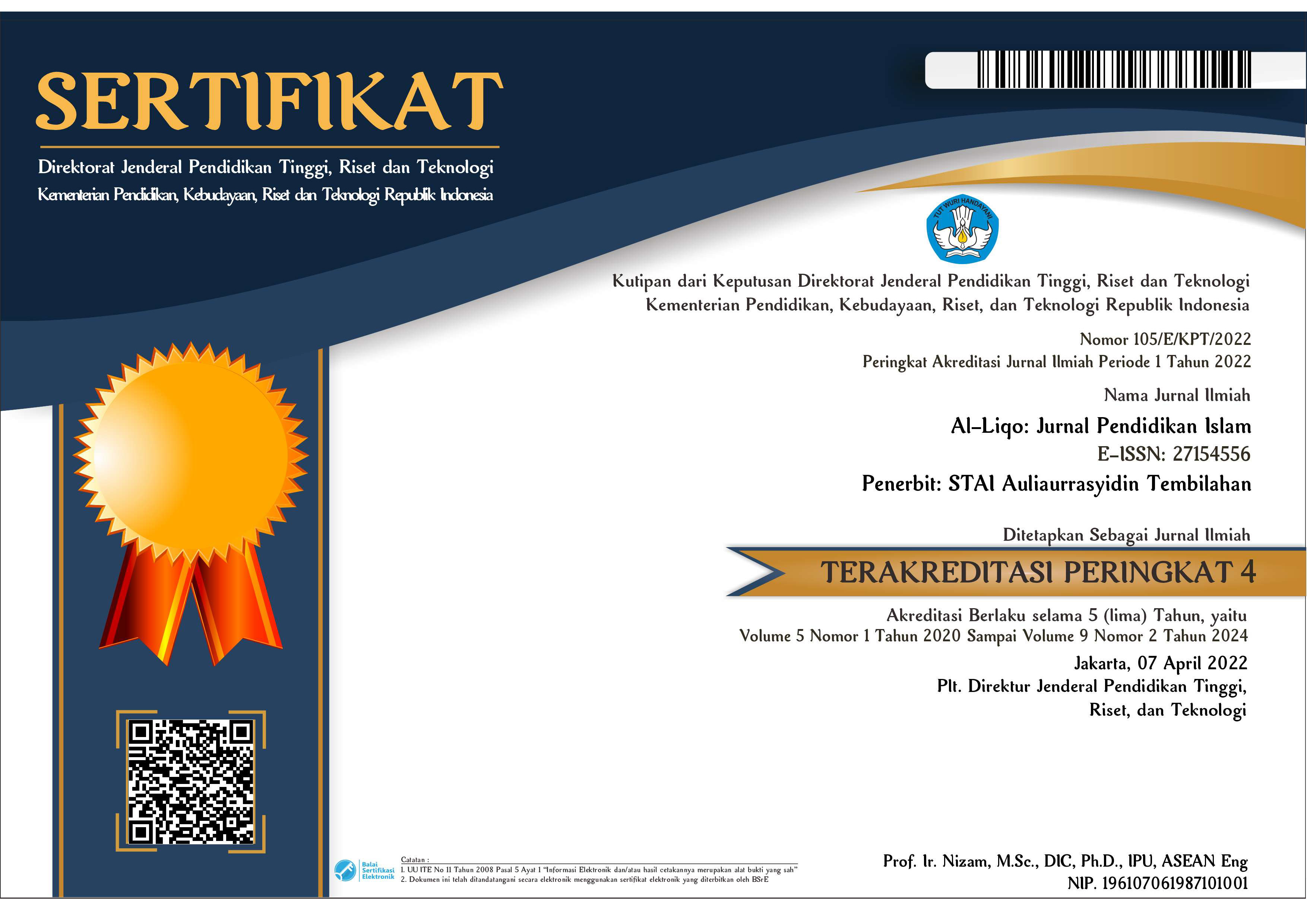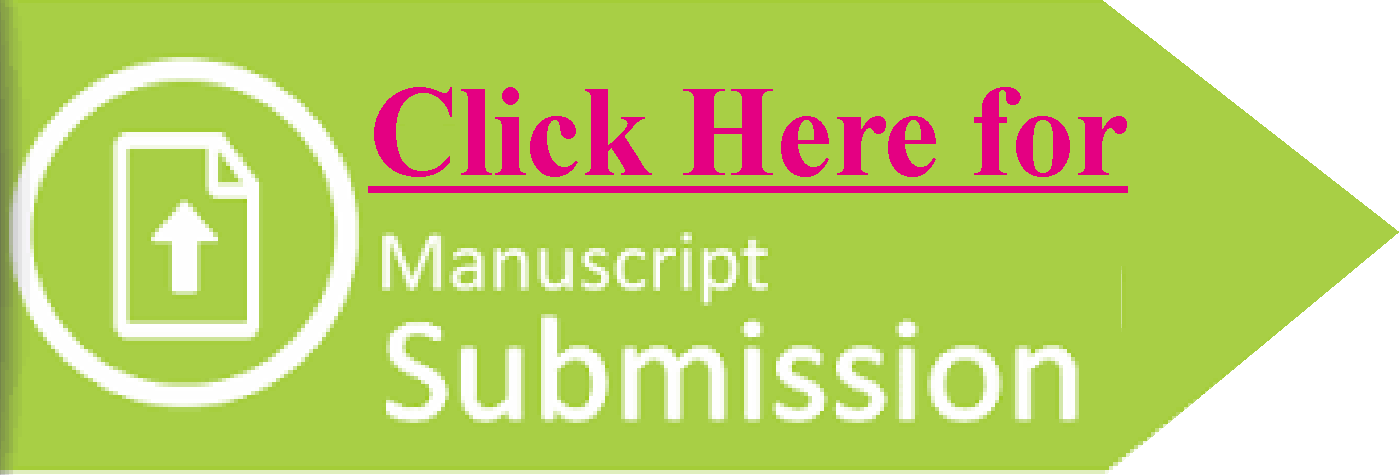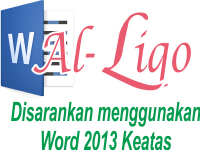Implementasi Kurikulum Merdeka Belajar pada Mata Pelajaran Fikih
DOI:
https://doi.org/10.46963/alliqo.v8i2.1500Keywords:
Independent Curriculum, FiqhAbstract
The aim of this research is to determine the process of implementing the independent learning curriculum in fiqh subjects at MAN 4 Bantul. This research is important to do to describe the independent curriculum in learning, because in this Madrasah the independent curriculum has just begun to be implemented. The research method used is qualitative research with a qualitative descriptive type. The data collection technique is by conducting interviews with curriculum staff and jurisprudence subject teachers. The results of this research show that there are advantages and disadvantages in learning jurisprudence using the independent curriculum, including the independent curriculum being used for all subjects at MAN 4 Bantul, the lack of educators because not all of them understand the independent curriculum, and the lack of supporting facilities such as student textbooks.used for learning.
Downloads
References
Angga, A., Suryana, C., Nurwahidah, I., Hernawan, A. H., & Prihantini, P. (2022). Komparasi Implementasi Kurikulum 2013 dan Kurikulum Merdeka di Sekolah Dasar Kabupaten Garut. Jurnal Basicedu, 6 (4), 5877–5889. https:// doi.org/10.31004/ basicedu.v6i4.3149.
Berlian Ujang C, S. S. R. P. (2022). ImplementasiKurikulum Merdeka Dalam Meningkatkan Mutu Pendidikan. Journal Of Education And Language Reserch, 1(12), 2106.
Cholilah, M., Gratia Putri Tatuwo, A., Prima Rosdiana, S., & Noor Fatirul, A. (2023). Pengembangan Kurikulum Merdeka Dalam Satuan Pendidikan Serta Implementasi Kurikulum Merdeka Pada Pembelajaran Abad 21. Sanskara Pendidikan dan Pengajaran, 01(02), 57–66. https://doi.org/10.58812/spp.v1.i02.
Priantini, D. A. M. O., Suarni, N. K., & Adnyana, I. K. S. (2022). Analisis Kurikulum Merdeka Dan Platform Merdeka Belajar Untuk Mewujudkan Pendidikan Yang Berkualitas. Jurnal Penjaminan Mutu, 8 (2). http://ojs.uhnsugriwa.ac.id/ index.php/ JPM.
Gafrawi, & Mardianto. (2023). Konsep Pembelajaran Fikih Di Madrasah Aliyah.
Hasanah, H. (2016). Teknik-Teknik Observasi (Sebuah Alternatif Metode Pengumpulan Data Kualitatif Ilmu-ilmu Sosial). Jurnal at-Taqaddum, 8 (1).
Jannati, P., Ramadhan, F. A., & Rohimawan, M. A. (2023). Peran Guru Penggerak Dalam Implementasi Kurikulum Merdeka Di Sekolah Dasar. al-Madrasah: Jurnal Pendidikan Madrasah Ibtidaiyah, 7(1), 330. https://doi.org/10.35931/am.v7i1.1714.
Nisa, A. K., & Ghifari, M. Al. (2023). Implementasi Kurikulum Merdeka Pada Pembelajaran Bahasa Arab Di Madrasah Aliyah Negeri 1 Kendari. Jurnal Ilmiah Pembelajaran Bahasa Arab dan KebahasaAraban, 6(2). https://doi.org/10.35931/am.v6i2.
Nuriawati, W. A. (2023). Implementasi Kurikulum Merdeka Belajar Pada Pelajaran al-Quran Hadits di MAN 3 Sleman Yogyakarta. Jurnal Pendidikan Sultan Agung, 3(2).
Pendidikan, J., & Agung, S. (2023). JP-SA. 3(2), 144–152. http://jurnal.unissula.ac.id/index.php.jpsa/index.
Rahmadhani, R. N., & Istikomah, I. (2023). Kompetensi Guru PAI dalam Mengimplementasikan Kurikulum Merdeka Belajar di Sekolah Muhammadiyah. Al-Liqo: Jurnal Pendidikan Islam, 8 (1), 20–36. https://doi.org/10.46963/alliqo.v8i1.793.
Sari, S., & Aprima, D. (2022). Analisis Penerapan Pembelajaran Berdiferensiasi Dalam Implementasi Kurikulum Merdeka Pada Pelajaran Matematika SD. Cendikia : Media Jurnal Ilmiah Pendidikan , 13 (1), 95-101.
Sumarsih, I., Marliyani, T., Hadiyansah, Y., Hernawan, A. H., & Prihantini, P. (2022). Analisis Implementasi Kurikulum Merdeka di Sekolah Penggerak Sekolah Dasar. Jurnal Basicedu, 6 (5), 8248–8258. https://doi.org/10.31004/basicedu.v6i5.3216.
Tangkudung, J. P. M. (2014). Proses Adaptasi Menurut Jenis Kelamin Dalam Menunjang Studi Mahasiswa Fisip Universitas Sam Ratulangi. Dalam Journal "Acta Diurna.
Tanjung, A. S. (2022). Internalisasi Nilai-nilai Moderasi Beragama dalam Pembelajaran Fikih di Madrasah Aliyah. Takuana: Jurnal Pendidikan, Sains, dan Humaniora, 1(1), 1–12. https://doi.org/10.56113/takuana.v1i1.29.
Downloads
Published
Issue
Section
License
Copyright (c) 2023 Muhammad Fuadzy Al Khadziq, Muh. Wasith Achadi

This work is licensed under a Creative Commons Attribution-ShareAlike 4.0 International License.
Authors who publish with this journal agree to the following terms:
1. Copyright on any article is retained by the author(s).
2. The author grants the journal, right of first publication with the work simultaneously licensed under a Creative Commons Attribution shareAlike 4.0 International License that allows others to share the work with an acknowledgment of the work’s authorship and initial publication in this journal.
3. Authors are able to enter into separate, additional contractual arrangements for the non-exclusive distribution of the journal’s published version of the work (e.g., post it to an institutional repository or publish it in a book), with an acknowledgment of its initial publication in this journal.
4. Authors are permitted and encouraged to post their work online (e.g., in institutional repositories or on their website) prior to and during the submission process, as it can lead to productive exchanges, as well as earlier and greater citation of published work.
5. The article and any associated published material is distributed under the Creative Commons Attribution-ShareAlike 4.0 International License







2.png)



